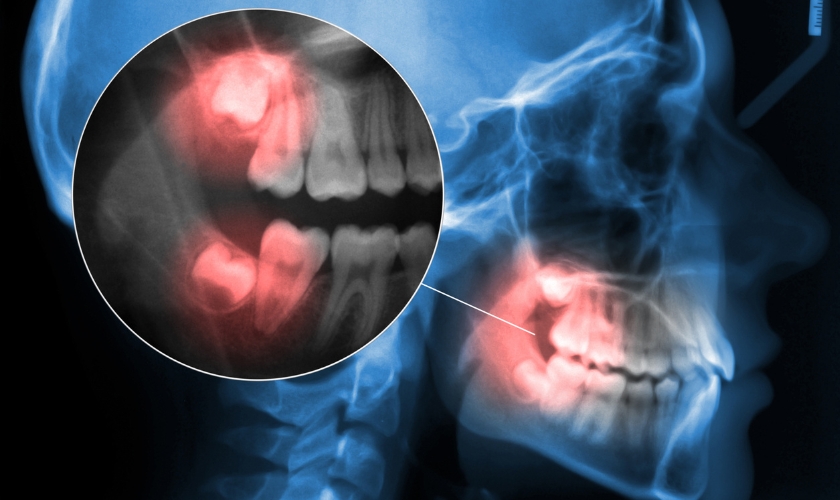704-844-2943
AVAILABLE FOR EMERGENCIESHow Long Does It Typically Take to Recover from Wisdom Teeth Removal? Tips for a Smooth Recovery

Wisdom teeth removal is a common dental procedure that many people undergo, especially in their late teens or early twenties. While the thought of surgery can be daunting, understanding the recovery process can help alleviate some of the anxiety. This blog will explore how long it typically takes to recover from wisdom teeth removal and provide practical tips to ensure a smooth and speedy recovery.
How Long Does Recovery Take?
The recovery time after wisdom teeth removal varies depending on several factors, including the complexity of the extraction, your age, overall health, and how well you follow post-operative care instructions. Here’s a general timeline of what you can expect:
1. First 24 Hours
- Pain and Swelling: Expect some discomfort, swelling, and minor bleeding within the first 24 hours. Your dentist will likely prescribe pain medication to help manage the pain.
- Rest: It’s essential to rest and avoid strenuous activities to prevent complications.
- Diet: Stick to a diet of soft foods like yogurt, applesauce, and mashed potatoes. Avoid hot foods and beverages to prevent irritation.
2. Days 2-3
- Swelling Peaks: Swelling often peaks around the second or third day after surgery and should gradually decrease after that.
- Bruising: You may notice some bruising around your jaw or cheeks, which is normal and should fade within a week.
- Pain Management: Continue taking pain medication as prescribed and apply ice packs to reduce swelling.
3. Days 4-7
- Improvement: Most people start to feel better by the fourth day. Swelling and pain should significantly decrease, and you can begin to introduce more solid foods into your diet.
- Oral Hygiene: You can resume gentle brushing, avoiding the surgical sites. Rinse your mouth with warm salt water to keep the area clean and promote healing.
4. Weeks 1-2
- Stitches Removal: If you have non-dissolvable stitches, your dentist will likely remove them about a week after the surgery.
- Full Recovery: By the end of the second week, most people feel much better and can return to their normal activities. However, complete healing of the extraction sites can take a few months.
Tips for a Smooth Recovery
Wisdom teeth removal usually takes one to two weeks to recover from, but most people can resume normal activities within three to five days. You can expect to have some pain, swelling, and bruising during this time, and you may find it uncomfortable to chew and swallow. Here are some tips to help you heal faster:
- Follow your dentist’s instructions: Your dentist will give you specific guidelines to ensure a comfortable recovery.
- Apply ice packs: Use ice packs on your face to reduce swelling, applying them for short periods throughout the day.
- Eat soft foods: Stick to soft foods like mashed potatoes, eggs, and oatmeal to minimize discomfort while chewing. Avoid small foods like nuts and seeds, as well as crunchy or chewy items that could harm the healing sites.
- Avoid smoking and alcohol: Both smoking and alcohol can hinder the healing process and raise the risk of complications.
- Limit physical activity: Physical exertion can lead to increased swelling, pain, or bleeding, so it’s best to avoid it and gradually resume after 5–7 days.
- Keep your head elevated: Try to keep your head elevated as much as possible to reduce swelling.
- Stay hydrated: Make sure your mouth stays moist by drinking plenty of fluids.
- Massage and stretch: Starting on the third day, gently massage and stretch your jaw muscles to prevent soreness.
- Practice gentle oral hygiene: It’s important to be gentle with your oral care. Avoid brushing or flossing near the extraction sites for the first 24 hours. After that, rinse your mouth with warm salt water to help prevent infection.
- Monitor for signs of infection: If you notice severe pain, persistent bleeding, fever, or bad breath, contact your dentist right away.
Potential Complications and When to Seek Help
While complications are rare, it’s essential to be aware of potential issues and know when to seek medical attention. Some common signs of complications include:
- Excessive bleeding
- Severe pain
- Swelling that worsens after a few days
- High fever
- Difficulty breathing or swallowing
If you experience any of these symptoms, contact your dentist promptly.
By following these guidelines, maintaining close communication with your dentist, and ensuring you maintain your oral hygiene routine, you can significantly enhance your recovery from wisdom teeth removal and return to your normal routine as quickly as possible. Remember, every individual’s healing process is unique, so patience and self-care are key.

